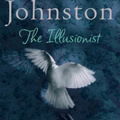A. S. Byatt: Possession
 I remember reading a very enthusiastic blog post about this novel sometime in the fall of 2009 which made me want to read Possession as soon as possible. However, the shop I used to order English-language books from didn’t have the novel in stock just then, so I ordered another novel by Byatt, A Whistling Woman instead. I quickly perused that novel and the knowledge of the author about literature, politics, society and a dozen other topics present in the novel amazed and frustrated me at once, and probably because of this slightly frustrating quality I didn’t really get to like the novel. I guess this was part of the reason why, when I finally bought Possession, I didn’t feel like reading it immediately. Months passed, I read several other enthusiastic reviews about the novel, my interest was constantly re-kindled, and the idea of Possession was always lurking somewhere in the back of my mind, but when it came to choosing what to read next, I always chose something else. Finally, after one and a half years I felt that the time has come to read Possession.
I remember reading a very enthusiastic blog post about this novel sometime in the fall of 2009 which made me want to read Possession as soon as possible. However, the shop I used to order English-language books from didn’t have the novel in stock just then, so I ordered another novel by Byatt, A Whistling Woman instead. I quickly perused that novel and the knowledge of the author about literature, politics, society and a dozen other topics present in the novel amazed and frustrated me at once, and probably because of this slightly frustrating quality I didn’t really get to like the novel. I guess this was part of the reason why, when I finally bought Possession, I didn’t feel like reading it immediately. Months passed, I read several other enthusiastic reviews about the novel, my interest was constantly re-kindled, and the idea of Possession was always lurking somewhere in the back of my mind, but when it came to choosing what to read next, I always chose something else. Finally, after one and a half years I felt that the time has come to read Possession.
And now I feel that I read this novel somewhat too late. Possession is a good, extremely sophisticated and very beautiful novel, but I guess it might have affected me differently if I hadn’t read it so soon after reading Mark Z. Danielewski’s wonderful and elaborate novel, House of Leaves, which became my all-time favourite mind-boggling postmodern novel almost at the moment I started reading it. After this novel, I found it hard to imagine that another book might soon come and affect me in such a way as House of Leaves did and leave me shattered, exhausted and totally fascinated at once. So in retrospect I feel that Possession didn’t really have a chance at all. Still, it was a good book.
Possession is about two young literary scholars, Roland and Maud, who set out to untangle a 19th century literary mystery. Both Roland and Maud have their distinct fields of research: Roland specializes in the life and art of the great Victorian poet, Randolph Henry Ash, while Maud does research on the talented but obscure Victorian poetess, Christabel LaMotte. There’s no known connection between Ash and LaMotte, but one day Roland discovers a draft for a letter, addressed to an unknown lady.
Roland – usually a reliable and slightly boring young man – secretly starts to dig into the mystery of the letter and he soon finds out that it might have been addressed to Miss LaMotte. Roland – having no other option – then confides in the LaMotte scholar Maud and the two of them set out to find out what kind of relationship might have existed between the two poets a hundred years ago. However, there are other scholars equally interested in LaMotte and Ash, so their quest doesn’t only involve the collection of information – they have to pay attention to their unscrupulous colleagues as well, scholars who would do just about anything to attain fame and wealth by unraveling such a literary mystery.
Sounds exciting, doesn’t it? A story of two impractical scholars who spend their time digging in old trunks in dusty attics, researching poets in the library, perusing boring 19th century journals and quirky letters, and reading feminist and deconstructivist essay collections when they need a rest. The trick is that Byatt actually makes all this sound quite exciting. It may be the (not too well-hidden) humanities student speaking in me, but while reading Possession I felt (not for the first time in my life) that nothing can be a more fascinating and rewarding occupation than to be a maniac of a topic and to spend a whole life studying it.
The quest of Roland and Maud, that is, the frame story is wonderfully gripping throughout the book, however, it took me a long time to become interested in the „real” (?) heroes, Ash and LaMotte. I found this rather strange because in the case of framed narratives, the inner story is usually more interesting than the framing story, however, with Possession, it was the other way round: I was much more interested in the relationship blooming between Maud and Roland, and the way they work together than in the actual results of their quest. I only grew to like the inner story when the first parallels between the Maud – Roland and Christabel – Randolph pairs appeared, and afterwards I could enjoy the poets’ story as well. Still, I sometimes laid the book aside when I saw that the upcoming chapter was again a fifty-page excerpt from a 19th century diary or a long poem, because I found Roland and Maud, their constant self-reflexive ruminations and the fascinating postmodern games in the frame narrative much more intriguing than the actual texts on which the scholars based their quest.
It’s also a highly interesting (though of course not a revolutionary) idea that the novel is about a literary quest, and Possession itself is a novel which encourages readers to engage in their own quest and find the connections between the pieces of the puzzle – games like this can be hugely enjoyable and they also give us an idea about what literature can be: a beautiful, uplifting but basically useless occupation. Useless in the sense that no one in the world will profit from Maud and Roland finding out that Christabel and Randolph in fact knew each other; and no one will profit from an English major student writing a thesis on, say, the parallels between 19th and 20th century realities in Possession – but I don’t think everything in the world has to be useful. And sometimes I would definitely trade places with Maud and Roland.





